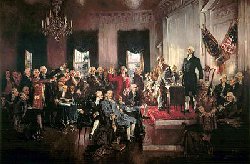- Guys have a hard time guessing what women like.
Click for AUDIO VERSION.
To use this segment in a Radio broadcast or Podcast, send TIM a request.
 I've been married now for over 35 years and you would think that after such a period of time I would have a good idea what my wife likes and dislikes. Frankly, I haven't a clue, and I don't think I'm any different than a lot of other guys out there who still have trouble understanding the feminine mystique. Let me give you some examples...
I've been married now for over 35 years and you would think that after such a period of time I would have a good idea what my wife likes and dislikes. Frankly, I haven't a clue, and I don't think I'm any different than a lot of other guys out there who still have trouble understanding the feminine mystique. Let me give you some examples...
In preparing to go out for a major social function, my wife typically comes out to model an outfit she is considering to wear and asks what I think about it. Usually she gives me a couple of choices, either this, this, or that. They all look nice, but regardless what I choose, she always settles for something else. After the outfit is selected, then it's a matter of what shoes to wear; again, this, this or that. Whatever I pick, she picks the opposite. Then of course comes the accompanying purse to complete the ensemble where I, of course, swing and miss again. Strike three. Frankly, I believe I'm a broken barometer when it comes to predicting what a woman wants to wear.
My daughter picked up this same modeling habit as she was growing up and would ask my son and I what we thought she should wear. Again, whatever we picked, she picked the opposite. Although she trusted my wife's judgment, my son and I always struck out. However, I got a little comfort out of this as I realized I wasn't alone in picking the wrong fashion.
This phenomenon isn't restricted to clothing either. I run across it whenever I want to order her food, or shop for presents. Whatever I pick, it's never quite right.
I'm flattered she still asks for my opinion on what she wants, but it's all very demoralizing when she ignores you. I am not allowed to take on a defeatist attitude either. For example, if I were to say something like, "Pick whatever you like," I'm accused of not caring. Then again, there is the game of deliberately picking the wrong item in the hopes she will pick what you want. Unfortunately, she sees though this ploy too easily and doesn't fall for it. Bottom-line she picks what she wants and I am nothing more than a shallow endorsement.
I guess the point of this exercise is to simply keep men on their toes and never allow them to get the upper hand.
While I'm on it, another part of the feminine mystique is the woman's purse. This is something I learned a long time ago not to go into as God only knows what you'll find in there, least of all something you're looking for. As I was growing up, my mother would ask me, "Just reach inside my purse and get me this or that." Of course I could never find "this or that" and, instead, learned to just retrieve the purse for her to look through. My wife is no different in this regards.
Women store a lot of things in a purse, such as their wallet, cosmetics, memo pads, glasses, cigarettes, cell phones, menus, report cards (from the 1960's), broken items in need of repair, and other pieces of bricabrac. Actually, the purse is more of a footlocker than anything else, which makes me wonder why anyone would try to snatch a purse as they would get a hernia trying to do so and wouldn't be able to find anything in it even if they were successful.
I also find it interesting how women have different sizes of purses; small dainty ones for social occasions, medium sizes for travel, or the "Big Mama" pack horses. Regardless of the size, they all manage to squeeze the same paraphernalia in them, which would even impress Harry Houdini. Regardless, I've learned to keep a safe distance away from women's purses and when asked to retrieve one, I treat it like a delicate Claymore mine.
Keep the Faith!
Note: All trademarks both marked and unmarked belong to their respective companies.
 Tim Bryce is a writer and the Managing Director of M&JB Investment Company (M&JB) of Palm Harbor, Florida and has over 40 years of experience in the management consulting field. He can be reached at timb1557@gmail.com
Tim Bryce is a writer and the Managing Director of M&JB Investment Company (M&JB) of Palm Harbor, Florida and has over 40 years of experience in the management consulting field. He can be reached at timb1557@gmail.com
For Tim's columns, see: timbryce.com
Like the article? TELL A FRIEND.
Copyright © 2019 by Tim Bryce. All rights reserved.
Listen to Tim on WZIG-FM (104.1) in Palm Harbor,FL; Or tune-in to Tim's channel on YouTube. Click for TIM'S LIBRARY OF AUDIO CLIPS.
 For ten years I coached Little League baseball and softball, not to mention being an umpire and serving on the local board of directors. I cannot lay claim to being the greatest coach, nor the worse. I certainly didn't suffer under the illusion this was the big leagues, nor that my kids would go on to play pro ball, even though a handful made it to the college level. Instead, I wanted to teach the mechanics of the game (how it is played), sportsmanship, and the general love of the game. My kids are all grown up now and if I made the slightest impression on them, that I somehow shaped their perspective on the game, than I consider myself lucky. There were only two things I asked of them; that they try their hardest, and maintain their grades in school.
For ten years I coached Little League baseball and softball, not to mention being an umpire and serving on the local board of directors. I cannot lay claim to being the greatest coach, nor the worse. I certainly didn't suffer under the illusion this was the big leagues, nor that my kids would go on to play pro ball, even though a handful made it to the college level. Instead, I wanted to teach the mechanics of the game (how it is played), sportsmanship, and the general love of the game. My kids are all grown up now and if I made the slightest impression on them, that I somehow shaped their perspective on the game, than I consider myself lucky. There were only two things I asked of them; that they try their hardest, and maintain their grades in school. I have recently been a guest on various radio talk shows to discuss the fundamental mechanics of American government. Inevitably, we discuss the teaching of Civics and History in schools, which I believe is lacking. I then recounted what I had learned during my elementary grade school years, which I believe was better than most high schools today.
I have recently been a guest on various radio talk shows to discuss the fundamental mechanics of American government. Inevitably, we discuss the teaching of Civics and History in schools, which I believe is lacking. I then recounted what I had learned during my elementary grade school years, which I believe was better than most high schools today. In this age of entitlement, some young people are wondering if they should be enjoying life as opposed to working as diligently as we do. This explains why Millennials do not seriously think about long-term employment. Studies indicate they would rather see the world now, not later, sample new delicacies, relax and play games as opposed to being attached to a career. From their perspective, they have two lives, personal and working, but they do not see them intertwined. This is the antithesis of preceding generations who worked hard, not just to survive, but to prosper.
In this age of entitlement, some young people are wondering if they should be enjoying life as opposed to working as diligently as we do. This explains why Millennials do not seriously think about long-term employment. Studies indicate they would rather see the world now, not later, sample new delicacies, relax and play games as opposed to being attached to a career. From their perspective, they have two lives, personal and working, but they do not see them intertwined. This is the antithesis of preceding generations who worked hard, not just to survive, but to prosper. The Mueller investigation was wrapped up and delivered to Attorney General William Barr's office this past Friday. As we all know, the charter of the probe was to see if any collusion existed between the Russian government and the Trump campaign. Now, after 22 months, $25.2 million, 2,800 subpoenas, 500 search warrants, and 500 witnesses, employing 40 FBI agents and 19 lawyers, the investigation found no evidence of collusion and obstruction. This is based on
The Mueller investigation was wrapped up and delivered to Attorney General William Barr's office this past Friday. As we all know, the charter of the probe was to see if any collusion existed between the Russian government and the Trump campaign. Now, after 22 months, $25.2 million, 2,800 subpoenas, 500 search warrants, and 500 witnesses, employing 40 FBI agents and 19 lawyers, the investigation found no evidence of collusion and obstruction. This is based on  People often ask me where I get the ideas for the topics I write about. Although most of it is from my own personal observations, I do occasionally get suggestions from my readership, such as today's topic which was suggested by a friend in Finland who recently learned a difficult lesson, namely, "No problem is too big that you cannot make it bigger."
People often ask me where I get the ideas for the topics I write about. Although most of it is from my own personal observations, I do occasionally get suggestions from my readership, such as today's topic which was suggested by a friend in Finland who recently learned a difficult lesson, namely, "No problem is too big that you cannot make it bigger." In the political world, people like to argue which group is more intelligent, particularly liberals. I'm not sure why this is, other than to presume it creates an air of superiority to suit someone's vanity. I believe it to be a moot point as I know a lot of smart people on both sides of the aisle, but I never saw a big discrepancy one way or another. Come to think of it, such a boast probably denotes some hidden weakness by the person expressing it. The biggest difference between the two sides, as far as I'm concerned, are separate interpretations of moral values. We simply see the world differently and have different priorities.
In the political world, people like to argue which group is more intelligent, particularly liberals. I'm not sure why this is, other than to presume it creates an air of superiority to suit someone's vanity. I believe it to be a moot point as I know a lot of smart people on both sides of the aisle, but I never saw a big discrepancy one way or another. Come to think of it, such a boast probably denotes some hidden weakness by the person expressing it. The biggest difference between the two sides, as far as I'm concerned, are separate interpretations of moral values. We simply see the world differently and have different priorities. One of my pet peeves involving politics is when people misstate our form of government. Normally, I would claim this as the fault of uneducated young people, but many politicians, members of the press, as well as grown-ups are also guilty of this faux pas. No, we most definitely do not live in a "democracy," but a "constitutional republic" instead, as does most of the governments in the world.
One of my pet peeves involving politics is when people misstate our form of government. Normally, I would claim this as the fault of uneducated young people, but many politicians, members of the press, as well as grown-ups are also guilty of this faux pas. No, we most definitely do not live in a "democracy," but a "constitutional republic" instead, as does most of the governments in the world. My company has been fortunate to have conducted business all over the world. Visiting the different cultures has afforded us the opportunity to learn a lot about their perspectives on life, not to mention their humor and speech patterns. Inevitably we often compare notes about the expressions and idioms used by people. For example, in Australia, I was somewhat surprised to learn that a "rubber" referred to an eraser. I went to a restaurant and discovered they didn't have "doggie bags" but rather "pussie boxes." I had to bite my tongue on that one.
My company has been fortunate to have conducted business all over the world. Visiting the different cultures has afforded us the opportunity to learn a lot about their perspectives on life, not to mention their humor and speech patterns. Inevitably we often compare notes about the expressions and idioms used by people. For example, in Australia, I was somewhat surprised to learn that a "rubber" referred to an eraser. I went to a restaurant and discovered they didn't have "doggie bags" but rather "pussie boxes." I had to bite my tongue on that one. I am finding as we grow older we gravitate to simple creature comforts. We are not easily impressed anymore as we have already experienced a lot and want to avoid anything that might complicate our lives. No, we don't want to do more maintenance, we want to do less. For example, I have been mowing lawns for 55 years now, which I really don't mind, but I balk at planting anything new requiring me to do any additional weeding or watering. I also know people who have removed their swimming pools as they no longer use them, nor want to maintain them. The mantra is "Simplify, Simplify."
I am finding as we grow older we gravitate to simple creature comforts. We are not easily impressed anymore as we have already experienced a lot and want to avoid anything that might complicate our lives. No, we don't want to do more maintenance, we want to do less. For example, I have been mowing lawns for 55 years now, which I really don't mind, but I balk at planting anything new requiring me to do any additional weeding or watering. I also know people who have removed their swimming pools as they no longer use them, nor want to maintain them. The mantra is "Simplify, Simplify." Recently, I happened to be driving near the local high school as it was ending the day. I saw a lot of students walking home alone or in groups. Interestingly, all were plugged into their smart phones listening to God knows what. At the gym later on, I experienced a similar phenomenon. It's incredibly quiet there as people are plugged into their phones. I've given up trying to hold a conversation with people there, and it is pretty much the same in offices as well.
Recently, I happened to be driving near the local high school as it was ending the day. I saw a lot of students walking home alone or in groups. Interestingly, all were plugged into their smart phones listening to God knows what. At the gym later on, I experienced a similar phenomenon. It's incredibly quiet there as people are plugged into their phones. I've given up trying to hold a conversation with people there, and it is pretty much the same in offices as well. I went to the beach recently with my wife where we planted our umbrella and chairs in the sand as we usually do. It was low tide so we moved down closer to the edge of the water. Interestingly, we found ourselves situated in the midst of a colony of fiddler crabs who were busy digging holes in the sand and filtering the granules for some sort of nutritious treasure, whatever that might be. Although there were dozens of them around us, they took care to keep their distance from us and quickly buried themselves in the sand if we moved too quickly or stamped our feet.
I went to the beach recently with my wife where we planted our umbrella and chairs in the sand as we usually do. It was low tide so we moved down closer to the edge of the water. Interestingly, we found ourselves situated in the midst of a colony of fiddler crabs who were busy digging holes in the sand and filtering the granules for some sort of nutritious treasure, whatever that might be. Although there were dozens of them around us, they took care to keep their distance from us and quickly buried themselves in the sand if we moved too quickly or stamped our feet.
 One of the fundamental differences between capitalism and socialism is in the area of class structure and, unfortunately, many people do not grasp this difference. Under capitalism, there are three levels: an upper class representing super successful people who have earned a fortune, the middle class representing John/Jane Doe who works diligently to put food on the table for their family, and a lower class representing the less fortunate of us. Influence is top-down based on the economic pecking order, thereby creating resentment by those lower in the chain.
One of the fundamental differences between capitalism and socialism is in the area of class structure and, unfortunately, many people do not grasp this difference. Under capitalism, there are three levels: an upper class representing super successful people who have earned a fortune, the middle class representing John/Jane Doe who works diligently to put food on the table for their family, and a lower class representing the less fortunate of us. Influence is top-down based on the economic pecking order, thereby creating resentment by those lower in the chain.